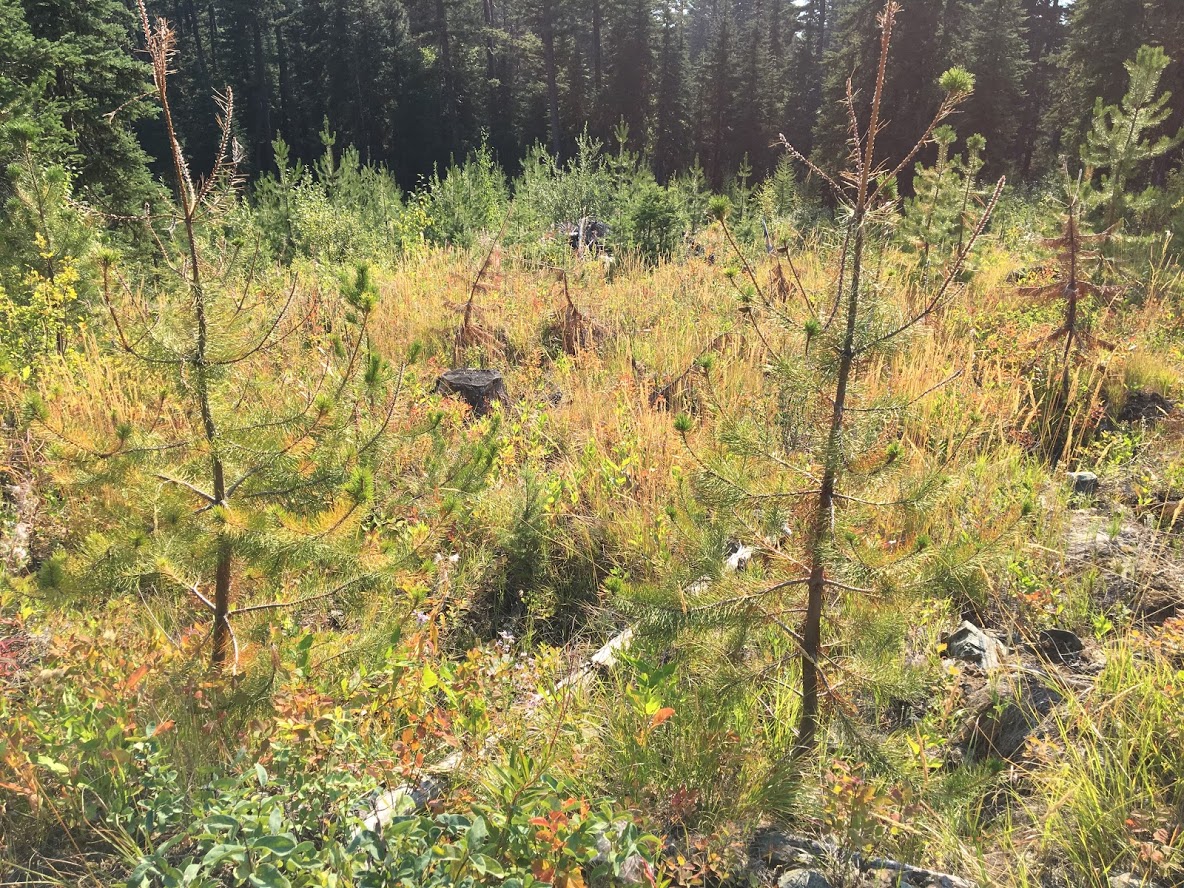The province’s forestry watchdog is raising concerns that some forests in B.C.’s Interior aren’t growing back well after logging.

A recent report from the Forest Practices Board looked specifically at dry Interior Douglas Fir forests and found more than half the areas they sampled were in “marginal or poor” condition.
The finding is significant both economically and environmentally.
If forests aren’t regenerating properly, there could be less timber to harvest in the future and it could also mean a loss of habitat for animals.
In B.C., the forestry industry, including companies and the provincial government’s BC Timber Sales program, are responsible for regenerating forests they’ve harvested.
The forestry watchdog found the industry is meeting its legal requirements but the sector isn’t always following best practices when it comes to regenerating the forests.
One issue that could be compromising reforestation, the board said, was the overuse of clearcutting because in this type of forest, “young trees don’t regenerate well without the shade and shelter of overstory trees.”

Consulting forester Ken Day believes over the last two decades forest professionals, used to dealing with areas impacted by the mountain pine beetle, have gotten used retaining reserve trees but otherwise clearcutting.

Get breaking National news
“I think that it’s difficult to expect an immediate return to these higher cost, slower approaches and more difficult kinds of harvesting,” Day said.
The board said climate change may be to blame for the poor condition of some of the stands.
The Forest Practices Board is recommending the province reassess its reforestation standards, factoring in climate change, and that it backs those new standards up with legal requirements as well as guidance.
BC Council of Forest Industries, which represents the sector, agrees with the watchdog that forestry should be evolving in response to climate change.
“Frankly some of that work is already going on. There are pilot projects going on with government,” said Susan Yurkovich, president and CEO of the BC Council of Forest Industries.
“Nobody wants to have…sustainable forests more than the forest sector that is something that is integral to our very being.”
The watchdog is also arguing that less clearcutting could help regenerate the forests.

The industry group is not ruling out the idea but doesn’t want to end clearcutting outright.
“I don’t think we should take a broad-brush approach and say clearcutting is not appropriate in all cases. I think what we want to do is be open look at these pilots and say what can we learn from them and how can we evolve our practices,” Yurkovich said.
Yurkovich doesn’t agree with Day that forest professionals are transplanting the methods used in areas impacted by the mountain pine beetle to other cut blocks.
“I think our forest professionals are always looking at different ways to evolve their practices,” she said.
- Hurricane Helene claims lives of Georgia mother and her one-month-old twins
- Tropical Storm Milton forms in Gulf of Mexico, could intensify as a hurricane threatening Florida
- Imperial Oil to pay hefty fine for 2021 oil spill that sickened residents
- Northern lights set to shine in parts of Canada this weekend. Here’s where










Comments